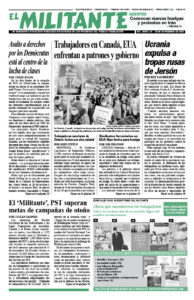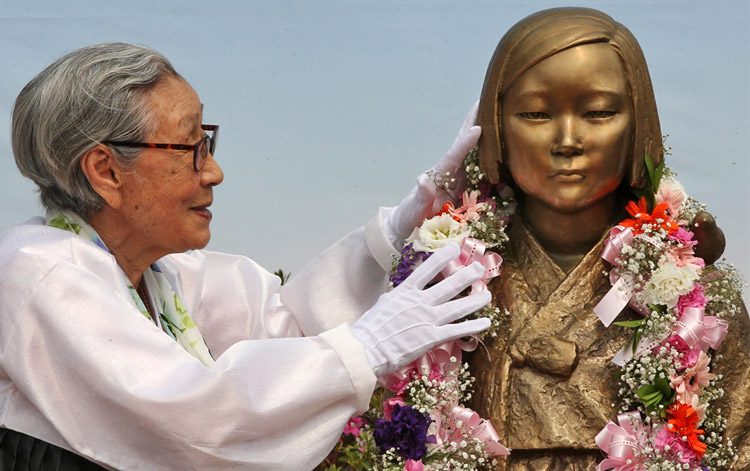PHILADELPHIA — Some 30 people came to see a movie on the life of Kim Bok-dong, a Korean “comfort woman” and human rights activist, Oct. 30. They also discussed the decision of the Philadelphia Art Commission to approve the installation of a memorial to the “comfort women” that month.
“Comfort women” is the euphemism employed by the Japanese government to describe the more than 200,000 women kidnapped and forced into brothels to service Japanese soldiers from the early 1930s and through the second imperialist World War. The United Nations estimates 90% of these women died during their captivity.
The Japanese rulers seized Korea in 1905 and imposed their colonial rule. They invaded Manchuria in 1931 and occupied most of Pacific Asia. In every area Japanese imperialist forces occupied, they set up “comfort stations” where women were forced to service as many as 50 Japanese soldiers a day.
This was part of the Japanese rulers’ preparations to challenge Washington over the Pacific, and to suppress the peoples they conquered. Millions were transported against their will to the Japanese mainland to serve as forced labor. Korean farmland was seized and turned over to Japanese landlords.
For decades after the U.S. rulers defeated Tokyo in 1945, the sexual slavery organized by the Japanese government was covered up.
Kim Bok-dong was just 14 when the Japanese took her in 1940. They said she was needed to work in a factory. If she did not come, they warned her mother, the family would suffer. But the teenager found herself transported to one of hundreds of “comfort stations.” It took her almost 40 years to find the strength to tell her story.
In the movie Kim Bok-dong speaks out about what she and many other Korean women were forced to go through. After the showing, Philadelphia Peace Plaza Committee Chairperson Shinjoo Cho described the six-year fight to get approval to put up a statue to Korean and other sex slaves. The statue is meant to draw attention to and educate about this history. In addition to Korea, women from other colonies of Japan were treated the same way.
A lively discussion followed about how important this history is for today. The Japanese government is remilitarizing and Washington has stepped up war maneuvers around the Korean Peninsula. Plans were discussed on placing the statue in a park, not far from Independence Mall, so it can be seen by as many people as possible.


